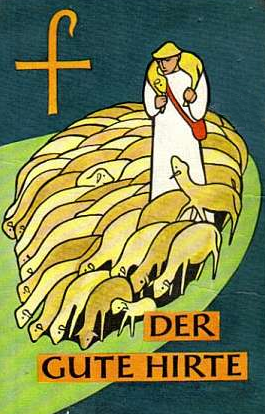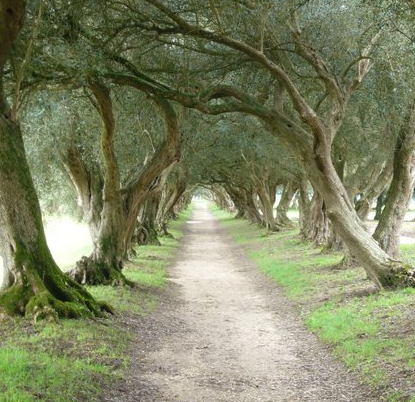You know it’s hot when you walk across the parking lot at the mall wondering if the asphalt is softening or if the soles on your shoes are melting; or maybe both. You know it’s hot when roads in Minnesota are closed not because of flooding, but because the pavement’s buckling and blowing up. It’s hot, and it’s not even summer yet.
Back in the 60’s, The Mamas and the Papas sang about the preacher who loves the cold because people out on a walk might come in and stay. I don’t know if any of you came in this morning just to get out of the heat and chill a little. Whatever it was that brought you here this morning I want you to know that I don’t love the heat, but I intend to take full advantage of it; it is a welcome illustration for the long, hard journey of God’s people through the wilderness.
The Hebrews had left the house of slavery in Egypt, dreaming of the promised land, dreaming of milk and honey and of resting in the pleasant shade of fig trees and vines. Moses had led them out, but he was just about ready to quit. God’s people weren’t acting like grown-ups, but very much like tired kids on a road trip: the complaints from the back seat just wouldn’t stop.
“I’m hot – can we stop at a pool?”
“Mom, he touched me; tell him not to touch me.”
“Why did we have to go on this trip, Dad?”
“Are we there yet?”
And when it came time for dinner, the complaints about the food just wouldn’t end, “Oh no, not manna again! We’re tired of eating manna every day.” Like generations of moms and dads Moses could have said, “And I’m tired of your constant complaints. Manna is what we’re having, and if you don’t like it, you’ll just have to go to bed hungry.” But Moses didn’t say anything like that. He turned to God and said,
Why are you doing this to me? What have I done that you lay the burden of all this people on me? Did I conceive all this people? Did I give birth to them, that you should say to me, ‘Carry them in your bosom, as a nurse carries a suckling child’? I am not able to carry all this people alone, for they are too heavy for me. If this is how you are going to treat me, I’d rather die.[1] You called me to lead your people according to your word and promise, but this is not what I agreed to do. These are your children, not mine, so don’t expect me to mother them all the way to the promised land.
God answered Moses saying, “Gather for me seventy of the elders of Israel and bring them to the tent of meeting. I will take some of the spirit that is on you and put it on them; and they shall bear the burden of the people along with you so that you will not bear it all by yourself.”[2]
And that is what happened. God took some of the spirit that was on Moses and put it on the seventy elders. Now it wasn’t just one man who would lead God’s people according to God’s word and promise, but a large group of elders; in the heat of the wilderness, the leadership base had been broadened to include a variety of voices and life experiences. The crisis wasn’t addressed by turning around and going back to Epypt or by attempting to find a short cut from the heat of the wilderness to the land of milk and honey. God addressed the crisis by giving leadership authority to a broader group of people.

Where Joshua is anxious and protective, Moses dares to dream of an outpouring of God’s spirit that would turn relationships of dependence and complaint into a community of freedom and mutual accountability. Moses, in the middle of the wilderness, gives voice to a vision we call Pentecost.
“In the last days it will be, God declares, that I will pour out my Spirit on all flesh, and your sons and daughters shall prophesy, and your young men shall see visions, and your old men shall dream dreams.”
Jews from every nation under heaven were in Jerusalem on that day, and they heard the good news of Jesus, each in their own language, and they were amazed. And it didn’t stop there. Slaves, forbidden to speak unless they were spoken to, proclaimed even to their masters the liberating word they had received from Jesus, the Messiah. Women, long denied the right to participate in interpreting the scriptures, began to preach and prophesy in powerful ways, and their fathers and husbands listened as well as their sons and daugthers. Old men who thought their days of dreaming were long over and young men who thought the future was void of new possibility began to share their visions of lives fully open to God. And it didn’t stop there. In chapter 8 of Acts, we read of Philipp who read scripture with a eunuch from East Africa. In chapter 9, we read about a Pharisee named Saul who was overpowered on the road to Damascus and recruited to proclaim the good news of Jesus the Messiah among all nations. In chapter 10, we read about Peter, not a young man anymore but not an old man yet, who received a vision that taught him not to call anyone profane or unclean, and he began to understand that God shows no partiality. When God declares, “In the last days I will pour out my Spirit upon all flesh,” God means all flesh.
The Spirit of God is poured out, and disciples of Jesus praise God in every dialect, extending the gospel of God’s gracious presence in Jesus Christ into every human arena, obliterating the word “foreign” from their vocabulary. The Spirit of God is poured out, and hierarchies of authority are flattened, long-established boundaries between clean and unclean become meaningless, and what is beginning to emerge is a community of freedom and mutual accountability.
Of course, it’s still hot out there and we’re not there yet. In many ways, it’s hotter out there than it’s been in a very long time and we’re less sure how to continue the journey than we have been in a very long time. It’s hot, and there are days when the heat is just brutal. These are particularly difficult times for denominations that have long been a strong and visible part of the fabric of life in this country and who must now learn to live without the privileges of cultural establishment. The world is changing incredibly fast, and the changes are shaking up our assumptions and challenging our imagination about many things, chief among them how to live faithfully as God’s people in the world. Sunday school classes large enough to fill half the sanctuary are disappearing fast in the rearview mirror together with women’s circles, deacons wearing white gloves, and other elements of church life we once took for granted.
There are days when I just want to sit in the back seat and complain about the heat and how long it’s taking us to get there and why we have to ride in this old car that doesn’t have video screens in the backs of the seats. But it’s a different kind of journey now. The knowledge of God’s will and word is no longer the domain of moms and dads who tell us where to go and what to do. Joshua was afraid this might happen and Moses wished to see the day when it would: the Spirit of God being poured out on all flesh, and all God’s sons and daughters discerning the way with authority and mutual accountability.
In the heat of the wilderness, God addressed Israel’s crisis by including more voices, more life experiences in leadership. And in the heat of the wilderness in which we find ourselves this is what we must remember: pouring out the Spirit, God has chosen us to be the body of Christ in the world, together. Church is not what we think we were in the 50’s or who we wish we were today; church is who and what we become when we listen for the word of God in every voice, and the voice of God in every word. Church is who and what we become when we discern together how to be faithful to God by being faithful to each other. Church is what the Spirit makes of us when we pray and when we serve the world in the name of Christ. So let us journey on.
[1] See Numbers 11:4-15
[2] See Numbers 11:16-17
















